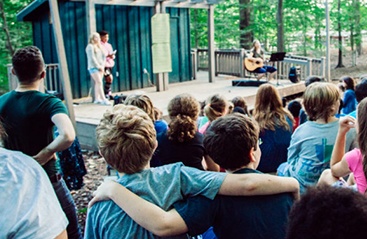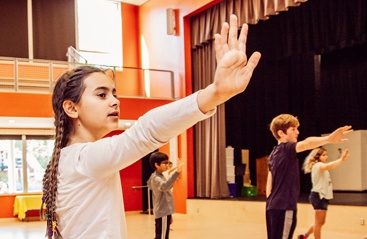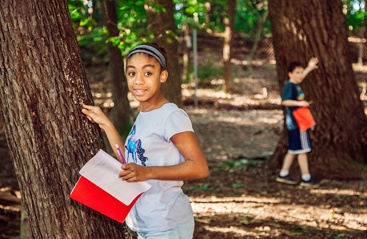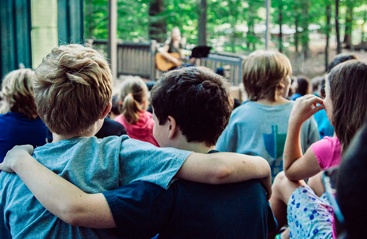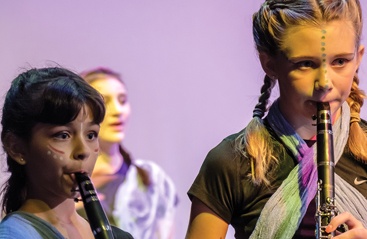The War in Ukraine: Another Teachable Moment
As the war in Ukraine rages on, it is helpful to remember what we learned in recent years as we helped children and young people understand and process feelings around complex events near and far: national realities around race, gender identity, public health, international conflict, natural disasters, and human rights issues around the world. In dealing with these topics, we explored many truths about supporting children as the adults around them tackle difficult topics in often imperfect ways. Much of what we learned is applicable as today we help with understanding the war in Ukraine.
Children often feel a need to learn more and be concretely impactful in the face of disasters and big feelings about them. They may want to know where these places are on the map, how they are connected, to each other and to us, draw posters, write letters to those involved, or write poetry, essays, and plays about the process, start petitions, march to embassies, etc.
In true progressive educational fashion, we saw several recent examples of this where a planned process shifted and the learning goals were refocused and linked to the exploration of the lived experience, interests, and needs of students in the here and now. In 4/5, students discussed the invasion of Ukraine and came up with the sunflower project described below as a way to be impactful and help. In our JK class, in the words of teacher Mike Connors, “During outside play, a small group of JK Chicks found some interesting sticks while playing in the woods and asked if they could make them into Ukrainian and Polish flags respectively (the mom of one of our JK Chicks is from Poland). This innocent and wonderful question sparked an entire morning filled with curious questions, thoughtful discussions, enthusiastic geographic/historical investigations, and high engagement–a teacher’s daily wish! After constructing flags and marching in protest against the Russian invasion in support of Ukrainian independence (yes, we discussed these academic vocabulary words!), the Chicks watched a recent segment of The Nightly News with Lester Holt Kids Edition and learned the basics about the war in Ukraine. They shared insightful thoughts such as, I’m glad “we (the US) is supporting Ukraine,” and raised relevant questions, including “is Russia a bad country?” Questions such as these enable thoughtful discussions about things like, when a government does something bad, it doesn’t mean all the people in or from the country governed are bad.
By talking to your kids about Ukraine and supporting any ideas they have to help, you are guiding them in building a sense of agency and management of feelings and thoughts that they need in the face of events that can feel very big, scary, and out of control. In the end, the goal is to surface the realities of the invasion and war in developmentally appropriate ways along with the associated feelings and thoughts and support positive ways to manage both.
Steps to Talk to Kids about Ukraine
- It’s essential to check your adult feelings, consumption of news, and understanding of the events. Your personal feelings and exposure will be experienced by your child on some level, even if they are not in the room when you’re watching the news or discussing the events with others. Assume that most children, even the youngest, have heard something about the current events.
- Open up the discussion by asking questions to figure out what is already known and respond to what’s shared.
- If you don’t get a better sense of how much your child knows from these opening questions, give them a brief synopsis on their level — at this point, you’ll sometimes get something like, “Oh yea, I heard about that,” and you will learn more about what they’ve heard and what they are thinking/feeling about it. If they truly know nothing, this is your opportunity to be sure they find out on their level and in an authentic and thoughtful way.
- Talk about feelings associated with the topic: your own, your children’s, as well as the feelings of all those directly involved. Again, you want to stay on the child’s developmental level of understanding. Seek help if the feelings you learn about seem bigger than they should as other complicated feelings can be triggered by these discussions.
Additional Helpful Resource Links:
- How to Talk to Kids About the Ukraine Invasion
- Psychologists explain how to talk to your kids about Ukraine
- What to Tell Kids about Ukraine
Inquire Now
Burgundy is a one-of-a-kind independent school for Junior Kindergarten through 8th Grade. We believe children learn best in an inclusive, creative, and nurturing environment that engages the whole child.
3700 Burgundy Road
Alexandria, VA 22303
703.960.3431
Accredited by:
Affiliated with:
Partners with:
©2024 Burgundy Farm Country Day School
Designed and developed by The Design Channel![]()

